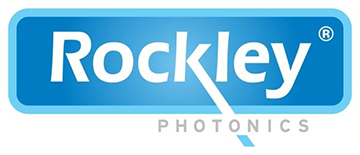![]()
[Image: krisanapong detraphiphat / Getty Images]
In a Form 8-K filed with the US Securities and Exchange Commission (SEC) on 23 January 2023, Rockley Photonics Holdings Ltd., a firm looking to commercialize wearable photonic technology for personal health, petitioned for reorganization under Chapter 11 of the US Bankruptcy Code.
Under the petition, the company asks to continue operating without interruption as a so-called debtor-in-possession, while it undertakes a reorganization plan filed on the same date in US Bankruptcy Court in New York. Rockley maintains in the SEC filing that the reorg and associated financial restructuring will clean existing debt off of the balance sheet and will result in “a new capital structure” that will leave the company with “approximately $35 million of cash for ongoing operations.”
Troubled SPAC aftermath
Rockley Photonics was one of a number of photonics firms caught up in the early 2020s frenzy of activity around “special-purpose acquisition companies,” or SPACs. Sometimes called blank-check companies, SPACs are publicly traded firms set up specifically for the purpose of finding a promising, relatively mature private company in which to invest. The SPAC then merges with the target company, which goes public through the already-listed SPAC.
The SPAC road became an attractive one to walk because it spared the target company much of the expense and paperwork of a traditional initial public offering (IPO). In photonics, many of the earliest adopters of the technique, starting in 2020, were in the lidar space. But photonics-related firms in other sectors, such as Rockley and the quantum-computing company IonQ, also used SPACs as a route to the public markets.

[Image: Rockley Photonics]
In Rockley’s case, the August 2021 deal, with a SPAC called SC Health—which raised some US$168 million for Rockley—was premised on the company’s planned pivot away from its previous business in areas such as data communications, and toward the personal-health sphere. The company has since pursued the vision of an optically enabled “clinic on the wrist” that would use integrated photonics and spectroscopy to noninvasively monitor a variety of biomarkers via wearable devices.
The post-SPAC journey for Rockley, however, has been a difficult one. At the end of 2021, for example, the company was forced to cancel the planned sale of its datacom business to a China-based joint-venture partner when the latter company found its way onto the US government’s restricted-entities list.
Further, while the company has unveiled some promising results for its wrist-based sensors, it has yet to market a commercial device. Meanwhile, its earnings and financial health have dwindled. As of September 2022, the company had accumulated a deficit of more than half a billion US dollars, and it experienced negative cash flow of US$117 million for the first nine months of 2022—with cash on hand of less than US$5 million.
Last October, Rockley hired a new president and chief financial officer, Richard Meier, with “experience in healthcare therapeutics and medical devices.” And in December, Meier took over as Rockley’s chief executive when Andrew Rickman, the company’s founder and longtime leader, resigned as CEO.
Stock delisting
The post-SPAC journey for Rockley has been a difficult one.
Although most of the photonics SPACs floated in 2020 and 2021 are now under water, trading sometimes well below their initial listing prices, Rockley’s stock market value has all but disappeared. As of 24 January—when the NYSE suspended trading of the shares—the firm’s stock traded at US$0.19 per share. That compares with a value of US$15.33 per share on 21 August 2021, when Rockley went public under the SPAC deal.
Indeed, according to a previous 8-K filing, Rockley received a letter from the NYSE on 9 December 2022, stating that the shrinking of the company’s market cap and shareholders’ equity meant that it was no longer in compliance with the exchange’s listing requirements. In the wake of the firm’s bankruptcy filing, the NYSE said it would institute delisting proceedings for both the company’s ordinary shares and associated warrants. Rockley stated in its 8-K that it did not plan to appeal the delisting.
Rockley will instead focus on implementing its reorganization plan. The plan proposes to eliminate the current debt load by swapping debt for equity in the reorganized company and through the extinguishment of certain debt classes. A disclosure statement said company has “overwhelming support” for the restructuring from its major stakeholders, including the noteholders who will receive equity in the reorganized company.
